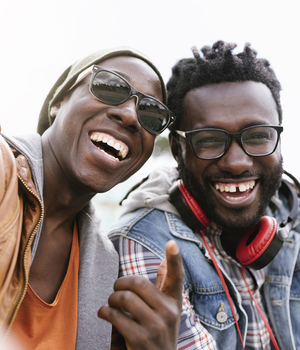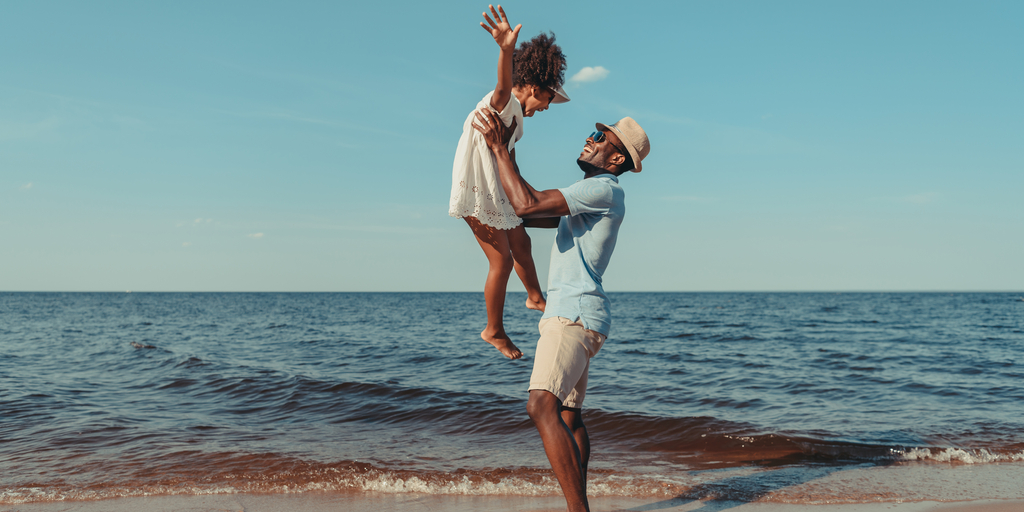Reading Time: 7 minutes
50 Black & African American Addiction and Mental Health Resources
Black Americans may face a number of barriers when considering addiction treatment or accessing mental health resources. Luckily, there are a multitude of resources and organizations who stand at the ready to help overcome these barriers.
Addiction and Mental Health in the Black & African American Community
 In the United States, 13.4% of the population identifies as Black. And approximately 7 million of those individuals struggle with mental illness.
In the United States, 13.4% of the population identifies as Black. And approximately 7 million of those individuals struggle with mental illness.
Yet, Black individuals often do not seek professional help for these challenges. Instead, they hide mental illness and try to deal with it alone. This tendency leads to further decline in mental health and often leads to substance abuse as well.
What’s stopping the Black community from reaching out for assistance?
Several factors are at play:
- Fear: Researchers discovered that the rates of fear regarding professional mental health treatment were 2.5x greater among Black people than white people.
- Alternative support: In many cases, Black individuals turn to social supports and religious counsel for assistance rather than professionals.
- Limited access: Often, Black individuals have had less access to healthcare and health insurance, which has limited their access to mental health and substance abuse treatment.
- Stigma: Due to historical oppression and racial discrimination, the perception of mental illness within Black communities is often negative. Mental illness is minimized, and people feel stigmatized if they admit to experiencing mental health issues or ask for help.
Fortunately, some of these factors are changing. Cultural attitudes toward mental health are improving, and the Affordable Care Act has lessened the gap between Black and white Americans seeking healthcare. Still, a look at recent statistics reveals a strong need for effective addiction and mental health resources for the Black community.
Addiction Statistics Among Black Americans
- Rates of drug and alcohol use among Black adolescents are higher than Caucasian adolescents.
- Black Americans have lower overall rates of substance abuse than white Americans, but…
To improve these rates, Black Americans who are facing mental health and addiction struggles need support. Following are 50 resources to treat, prevent, heal, and manage mental health and addiction challenges and deliver much-needed support for the Black community.
Crisis Line Resources for Black Americans
- Crisis Text Line: Text HOME to 741-741 at any time to speak with a crisis counselor. The site also offers articles about mental health issues, written for Black people by Black people.
- Suicide Prevention Lifeline: 800-273-8255 Support is available 24/7 for anyone struggling with mental health crises or suicidal thoughts.
Mental Health and Substance Abuse Resources for Black Americans
 AAKOMA: This organization works to provide support for teens and young adults to improve the mental health of POC.
AAKOMA: This organization works to provide support for teens and young adults to improve the mental health of POC.- BEAM: The Black Emotional And Mental Health Collective is dedicated to decreasing the stigma of mental illness in the Black community. Offers recovery resources.
- Black and African American Communities and Mental Health-Mental Health America: This organization is committed to promoting mental health and prevention services for Black and African American individuals.
- Black Girls Smile: This nonprofit encourages positive mental health resources, education, and support for young Black women and girls.
- Lee Thompson Young Foundation: This group is dedicated to erasing stigma associated with mental illness by providing information, supporting research, and sponsoring youth programs.
- My Therapy Cards: Created by a psychologist woman of color to help men and women of color grow in their mental health. Used for self-discovery through the application of genuine therapy techniques.
- National Pan-Hellenic Council: This organization is devoted to improving access to services and resources for Black sororities and fraternities.
- The Loveland Foundation: A foundation committed to supporting communities of color, with a focus on Black women and girls. Offers resources and initiatives to promote access and healing.
- Therapy for Black Girls: An online space dedicated to encouraging the mental wellness of Black women and girls. Search for therapists and find other resources.
- Therapy for Black Men: Offers resources to provide multiculturally-competent care for Black men. Includes a directory for Black men seeking therapy.
- The Steve Fund: This organization offers crisis response and financial assistance to students of color, to promote mental health and emotional well-being.
- The Trevor Project: A national organization that offers crisis intervention and suicide prevention services to LGBTQ+ youth, with an emphasis on POC.
- TWLOHA’s Treatment & Recovery Scholarships: To Write Love On Her Arms is an organization that offers support for anyone struggling with self-harm, substance abuse, or depression.
Online Platforms and Communities for Black College Students
- Ourselves Black: This platform shares information about mental health and positive coping, in an effort to improve awareness of mental health issues among Black communities.
- Rest for Resistance: This blog shares testimonials and works of fiction that focus on the QTPOC experience in the U.S. today.
- The Clay Center for Young Healthy Minds: This free educational resource is devoted to supporting and promoting the mental and behavioral well-being of young people.
- Young People of Color: This organization offers an online support community for young people of color.
Podcasts for Black College Students
- Balanced Black Girl Podcast: Created by Black girls for Black girls, this podcast focuses on positive self-care and improving overall wellness.
- Bobo and Flex Podcast: Produced by two Black women, this podcast discusses a variety of thought-provoking subject matter.
- Hey Jason!: This podcast offers open discussion of mental health issues concerning Black men what have typically been stigmatized among the Black community.
- Side Hustle Pro: Entrepreneur Nicaila Matthews Okome shines the spotlight on bold, Black women entrepreneurs and offers tips for starting a side hustle, business, or podcast.
- The Minority Trailblazer: A podcast discussing topics of Black professionalism, offering advice to help young people achieve success.
- Therapy for Black Girls Podcast: Focuses on well-being of Black girls. Covers all topics that fall under holistic care.
Articles for Black College Students
- 10 Daily Positive Affirmations for When Black Lives Forget That They Matter: A list of 10 positive meditations every young black soul needs to remember.
- 100 Radical Acts of Self-Care: A guide for Black women who have never prioritized self-care. Offers a practical road-map to considering self needs.
- An Open Letter to Black Women About Mental Health: A letter to Black women from Minaa B, psychotherapist and social worker, to encourage readers and promote mental health.
- Interactive Self-Care Flow Chart: Designed for people who struggle with self-care or have trouble reading internal signals.
- Racism Recovery Plan: Offers steps to take to recover from racism and racist experiences.
- Self-Care Wheel: A tool to help improve well-being, manage stress, and increase life satisfaction.
- The Link Between Experiences of Racism and Stress and Anxiety for Black Americans – A Mindfulness and Acceptance-Based Coping Approach: This article draws attention to the link between experiences of racism and mental health.
Videos for Black College Students
 A Discussion About Better Care for Black Mental Health: Researchers and doctors discuss Black experiences in mental health care and how to improve them.
A Discussion About Better Care for Black Mental Health: Researchers and doctors discuss Black experiences in mental health care and how to improve them.- Racial Anxiety Relief Guided Meditation: Shares the tapping method of meditation, designed with people of color in mind.
- Self-Care in College: Discusses what stress is like for college students, covering a range of topics including depression and suicidal thinking.
- Ted Talks –Comfortable with Being Uncomfortable: Ajayi Jones shares three questions to ask yourself if you’re debating speaking up or not, and encourages viewers to get comfortable with being uncomfortable.
- Ted Talks – How Childhood Trauma Affects Health Across a Lifetime: Pediatrician Nadine Burke Harris explains the effects of repeated abuse, neglect, and mental health issues on the development of the brain.
- Therapy for Black Girls – Anxiety, Depression, and Eating Disorders: A discussion of experiences with mental health stigma and one woman’s group therapy journey.
- What Trauma Taught Me About Resilience: Discusses the importance of resilience, as one of the most important traits to have, and how it can be learned.
Social Media Influencers for Black College Students
- Austin Channing: This Black advocate promotes Black wellness, covering emotional, physical, and mental issues.
- Between Sessions: This platform addresses everyday mental health barriers Black people face and seeks to make mental health more accessible and understood in Black communities.
- Black and Embodied: This Instagram page run by mental health therapist Alishia McCullough promotes mental health among BIPOC.
- Black Nutritionist: An Instagram page that encourages embracing your culture and eating with respect for diet and health, without guilt.
- Saddie Baddie: A platform for Black and multiracial people to destigmatize mental health and promote community healing.
- Sad Girls Club: An organization committed to destigmatizing mental wellness for Gen Z and millennial women and girls of color.
- The Nap Ministry: This platform encourages rest as a positive form of mental health care.
- Transparent Black Girl: A place for Black women to improve and support their own mental health.
- Transparent Black Guy: A place for Black men to improve and support their own mental health.
Data, Reports, and Articles for Black Americans
- 2019 National Survey On Drug Use and Health – African Americans: This report offers insights into the state of mental health and substance use issues in the African American community.
- The Opioid Crisis and the Black/African American Population: This overview shares factors influencing opioid use and opioid use disorder in Black communities and offers strategies for treatment and recovery.





